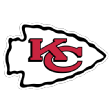Refs missed tripping call before late Lions penalty
A missed call late in Saturday night’s game between the Detroit Lions and Dallas Cowboys led to an even higher-profile error in what has escalated into the latest and most egregious example that the NFL has an officiating issue.
The latest controversy surrounding referee Brad Allen and his officiating crew — involving an overturned 2-point conversion by the Lions — may have been avoided if not for another missed call on the Cowboys’ previous possession.
Allen’s officiating crew is expected to be downgraded, which will influence whether those officials are chosen for the postseason.
The Cowboys owned a 17-13 lead when they intercepted Jared Goff at the Lions’ 29-yard line with 2:05 remaining. Tony Pollard‘s 7-yard run on the ensuing play was called back after Dallas tight end Peyton Hendershot was called for tripping, and the Cowboys faced a first-and-25 on the Lions’ 44.
Video of that initial first-down play, reviewed by ESPN, showed that Lions defensive end Aidan Hutchinson — not Hendershot — should have been the one flagged for attempting to trip Pollard. The NFL has not commented on the tripping call mistake as of Sunday morning.
A penalty against the Lions on that play would have set up the Cowboys with a first down after the two-minute warning and a chance to run more of the clock while forcing the Lions to use their remaining timeouts.
Instead, the Cowboys called three consecutive passing plays to get back into field goal range and took a 20-13 lead on Brandon Aubrey‘s 43-yard field goal with 1:41 remaining. That turned out to be more than enough time for the Lions to score a touchdown and set the stage for the controversial call on Detroit’s ensuing 2-point conversion attempt.
The Lions trimmed their deficit to 20-19 on Goff’s touchdown pass to Amon-Ra St. Brown with 23 seconds remaining and opted to go for the 2-point conversion. Taylor Decker hauled in what would have been the go-ahead catch, but officials flagged the Lions offensive lineman for an illegal touching penalty for not reporting as eligible.
The Cowboys stopped the Lions’ 2-point retry and held on for the 20-19 victory.
The Lions and the referees gave contradictory accounts of the 2-point conversion attempt after the game, with Goff saying definitively that Decker reported as an eligible receiver and that Dan Skipper, a backup offensive tackle, did not. Skipper also said afterward that he did not report to an official.
But in a pool report, Allen said the opposite — that Skipper reported to him as eligible and Decker did not.
“Therefore, he is an ineligible touching a pass that goes beyond the line, which makes it a foul,” Allen said of Decker in the pool report. “So, the issue is, number 70 did report, number 68 did not.”
Video showed Decker having a conversation with Allen, who then said something to the Cowboys’ defense.
“That conversation is where [Skipper] reports to me, and I then go to the defensive team, and I say to them, ‘[Skipper] has reported as an eligible receiver,’ so they will be aware of who has reported,” Allen said in the pool report.
Decker said he did “exactly what Coach told me to do,” while Skipper said he had “very few words that aren’t going to get me fined.” Lions coach Dan Campbell added that he was “frustrated” by the game’s ending, and he is not the first coach or team official to express those sentiments about Allen’s crew this season.
Allen’s crew failed to call a blatant and potentially game-deciding pass interference penalty earlier this month in a game between the Chiefs and Packers — one week after missing a similar call in a game between the Saints and Falcons.
The crew also drew criticism in Week 15 for not calling roughing the passer on Browns pass-rusher Za’Darius Smith, who was fined but not penalized for his hit on Bears quarterback Justin Fields.
Officials are evaluated on every play of every game. League officiating staff members analyze the performance of every official, both for the calls that are made and those that are not. That review results in a grade that plays a major role in determining how to help the officials improve their performance as well as decide which officials will work playoff games. There are also year-end evaluations of every official.
ESPN’s Eric Woodyard contributed to this report.




